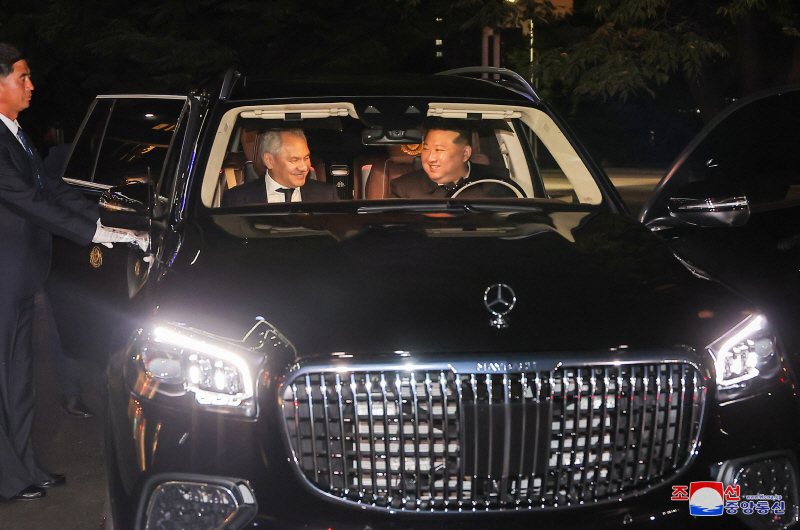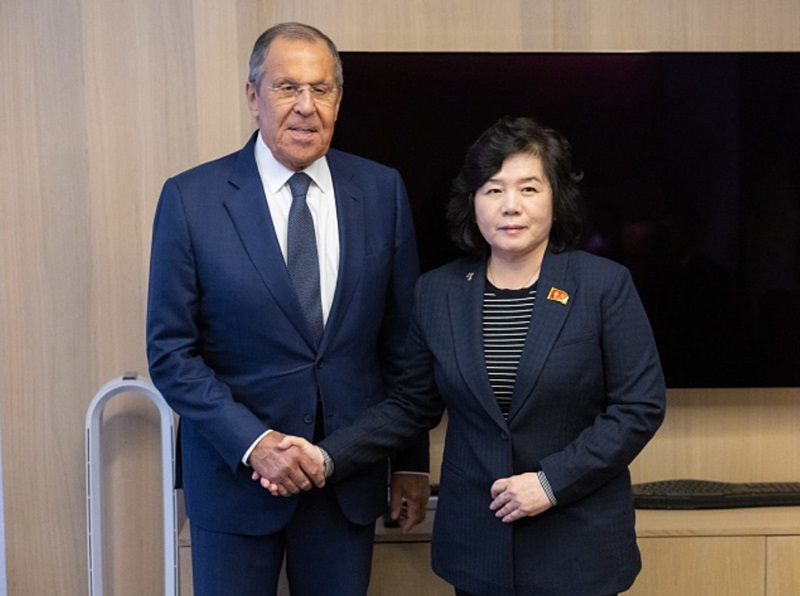North Korea escalated tensions with South Korea and the international community, even during the Chuseok holiday, the Korean equivalent of Thanksgiving, by launching ballistic missiles and sending trash balloons, while strengthening strategic ties with Russia ahead of the U.S. presidential election on November 5.
According to the Russian Foreign Ministry on September 17, North Korean Foreign Minister Choe Son-hui visited Moscow for talks with Russian Foreign Minister Sergey Lavrov. The Russian ministry stated, “The two ministers exchanged views on ways to advance the comprehensive strategic partnership between their countries.”

Before Choe’s visit, Sergei Shoigu, a close aide to Russian President Vladimir Putin and Secretary of the Security Council, met with North Korean leader Kim Jong-un in North Korea on September 13, exactly one year after the Putin-Kim summit in Russia’s Vostochny.
According to North Korea’s state-run media, Kim praised the progress in bilateral relations following the June summit in Pyongyang and emphasized plans to further expand cooperation “in line with the spirit of the comprehensive strategic partnership agreement.”
Kim’s hospitality was notably highlighted when he personally drove Shoigu in a luxury Mercedes-Benz, with the Russian official seated in the passenger seat, underscoring the high level of respect shown to the Russian delegation.
On September 18, North Korea launched several short-range ballistic missiles (SRBMs) from the region of Kaechon, South Pyongan Province. Analysts suggest the missiles could be an upgraded version of the KN-23, a North Korean variant of Russia’s Iskander missile, based on their speed and flight trajectory.

The KN-23 is believed to be one of the missile technologies North Korea has shared with Russia. Additionally, North Korea released more propaganda balloons toward the South later that afternoon.
NATO Secretary-General Jens Stoltenberg, who is set to step down in October, commented on the increasing cooperation among authoritarian regimes during an interview with The Times on September 17.
“Since Russia’s invasion of Ukraine in 2022, China, Russia, Iran, and North Korea are becoming ‘more and more aligned,’” he said. “North Korea and Iran are providing significant military support and providing missiles, and drones to Russia without them becoming a direct party to the conflict.”
Following his visit to North Korea, Shoigu made an unannounced visit to Iran on September 17.
North Korea seems to be leveraging its relationship with Russia as a bargaining chip ahead of the next U.S. administration. Earlier this month, North Korea showcased a new 12-axle transporter erector launcher (TEL), presumed to be for a new intercontinental ballistic missile (ICBM), on September 8, followed by the unprecedented disclosure of a major highly enriched uranium (HEU) production facility five days later on September 13.
North Korea’s uranium facility has been a critical factor in previous diplomatic breakdowns with the U.S., most notably during the George W. Bush administration, and played a significant role in derailing the Singapore and Hanoi summits under the Trump administration.
Experts suggest that North Korea may conduct a new ICBM test or its seventh nuclear test before the U.S. election.
Park Won-gon, a professor at Ewha Womans University, noted, “Kim Jong-un may be aiming to solidify North Korea’s status as a nuclear power by continuing to demonstrate its nuclear capabilities, especially given that denuclearization has disappeared from the U.S. election platforms of both the Democratic and Republican parties.”
BY YUJUNG LEE, YOUNGNAM KIM [uuu@joongang.co.kr]




